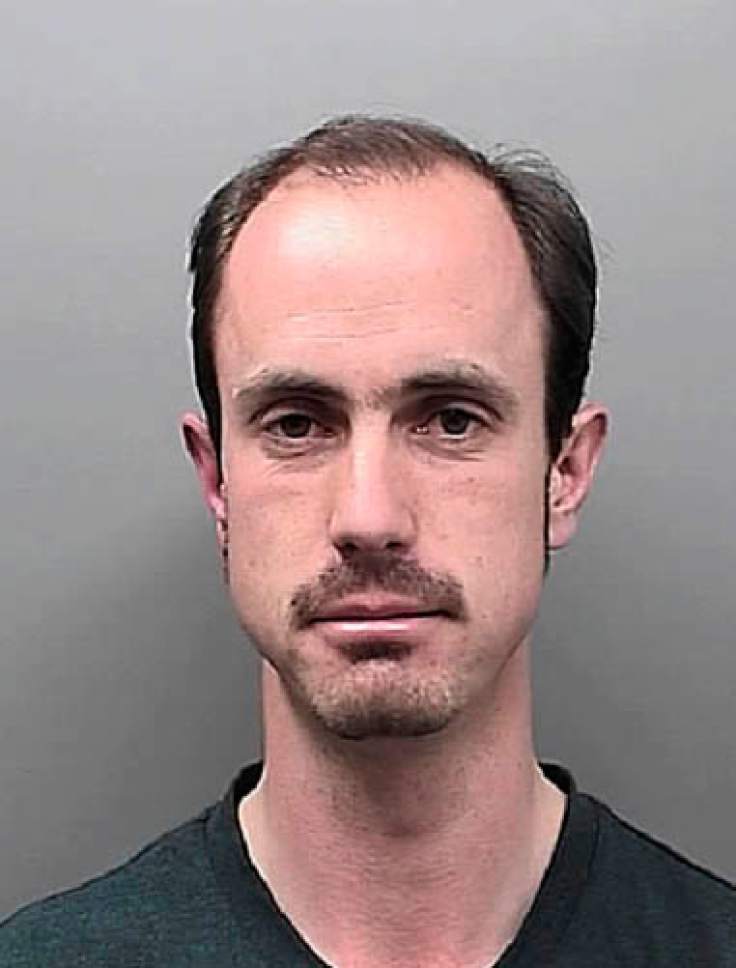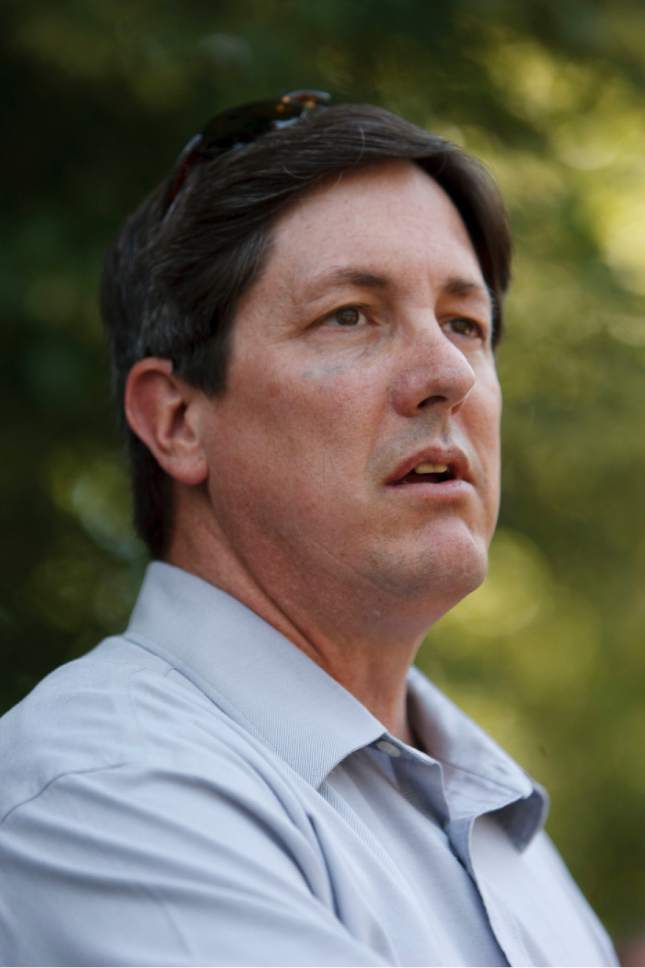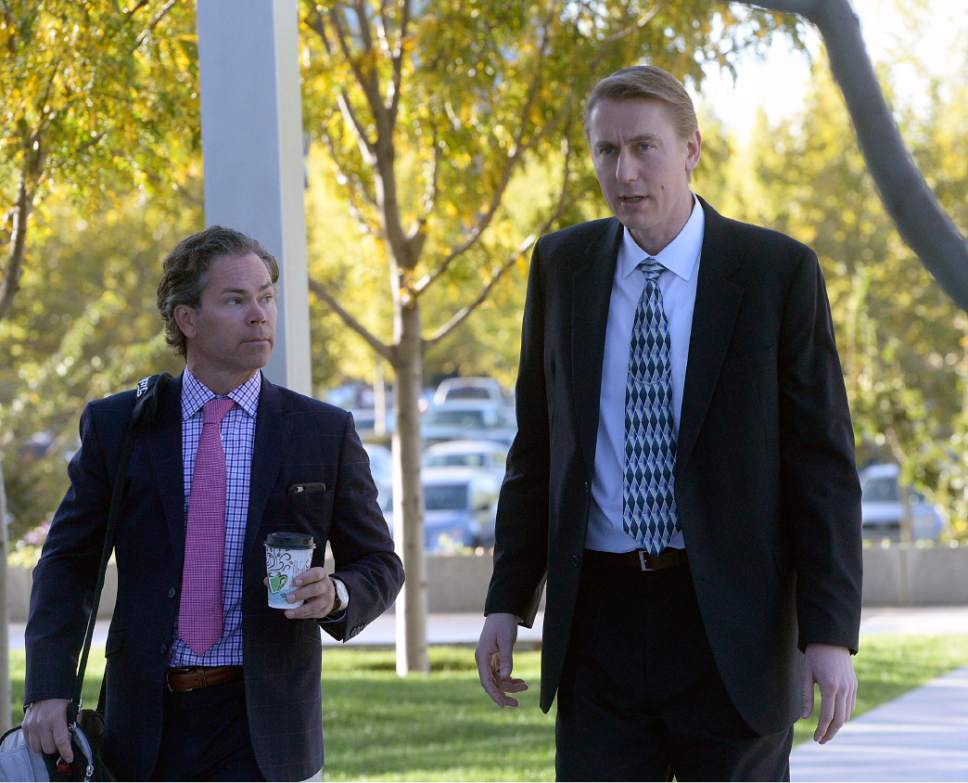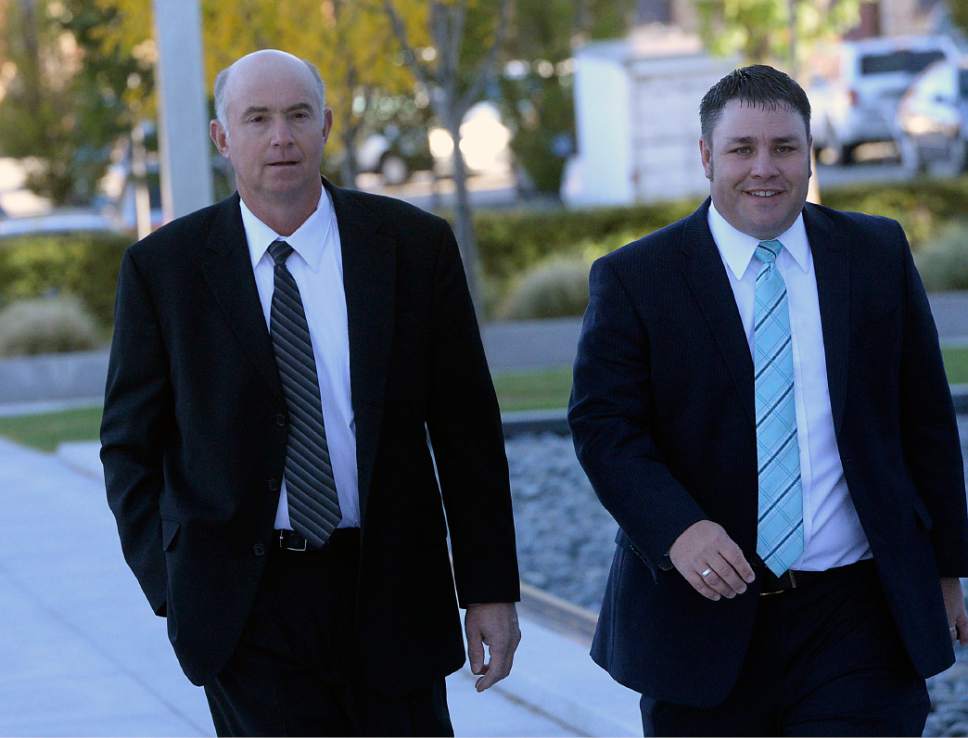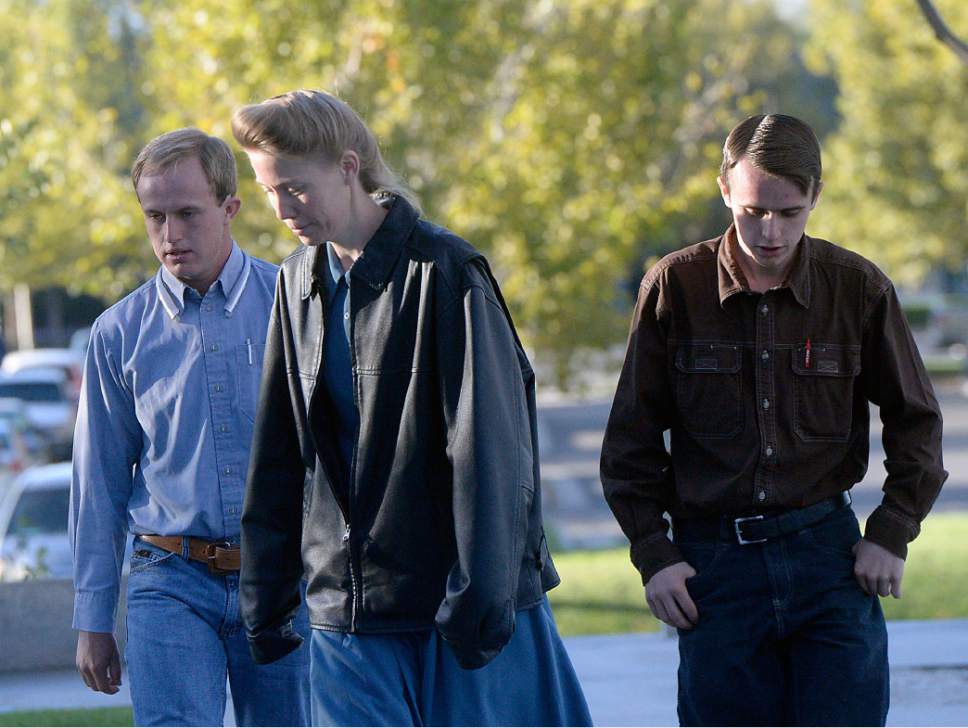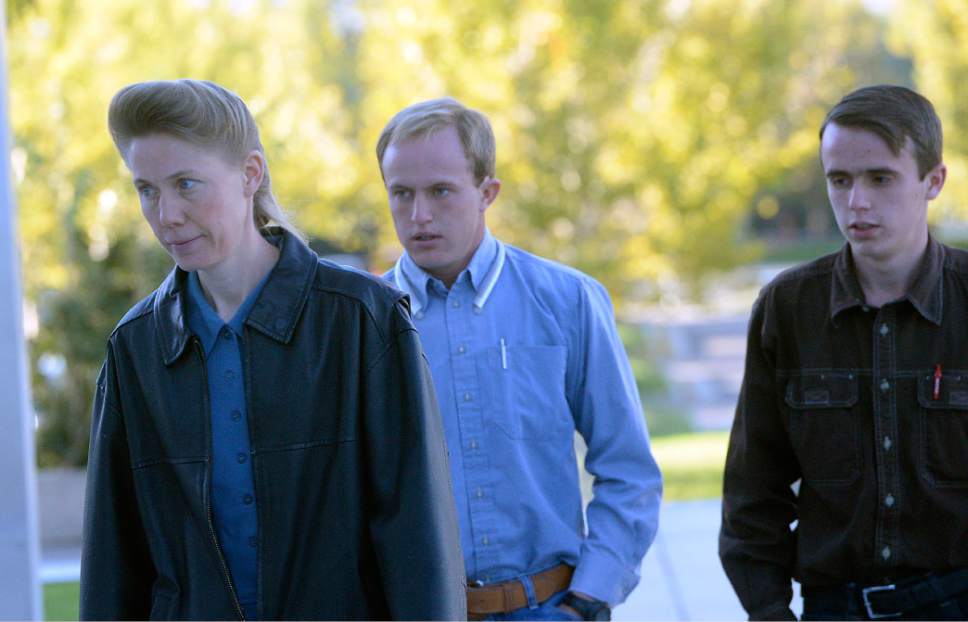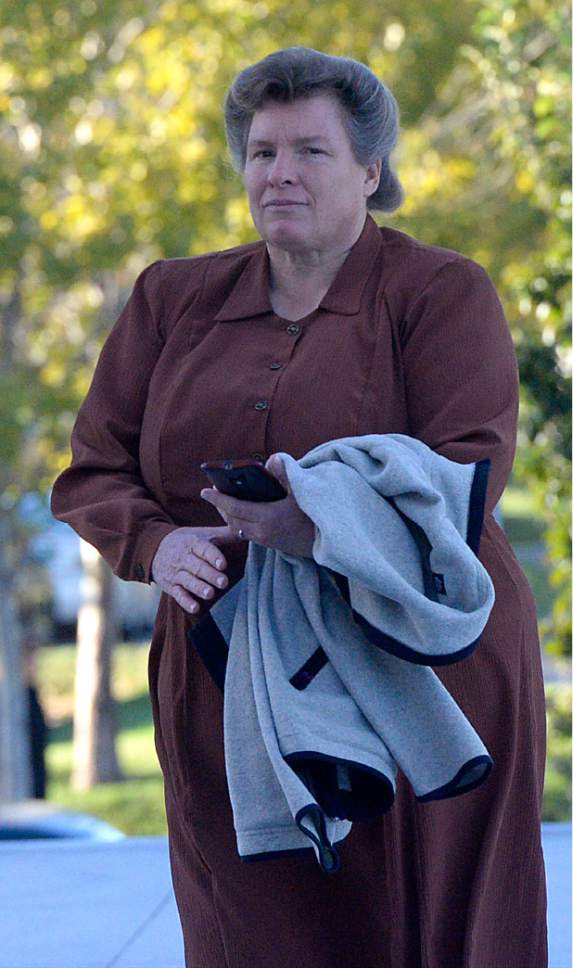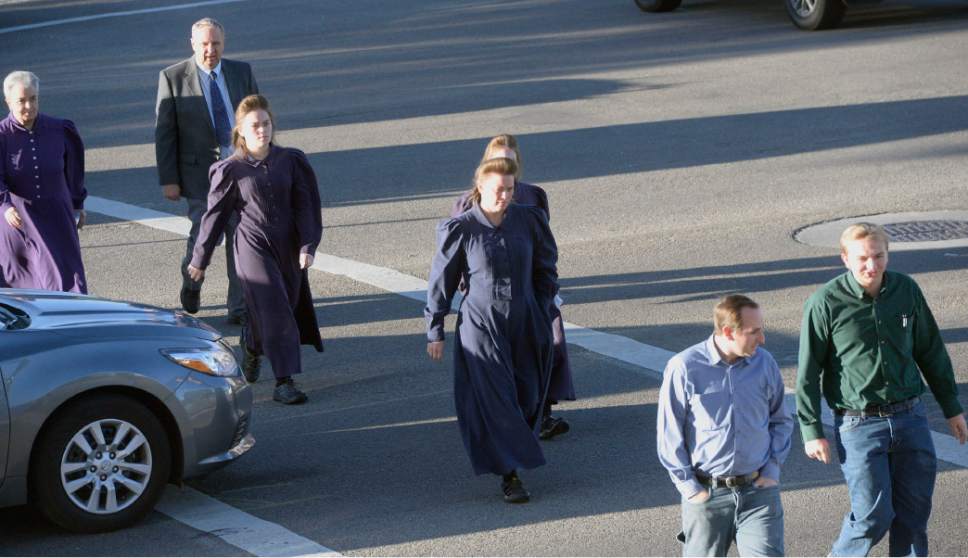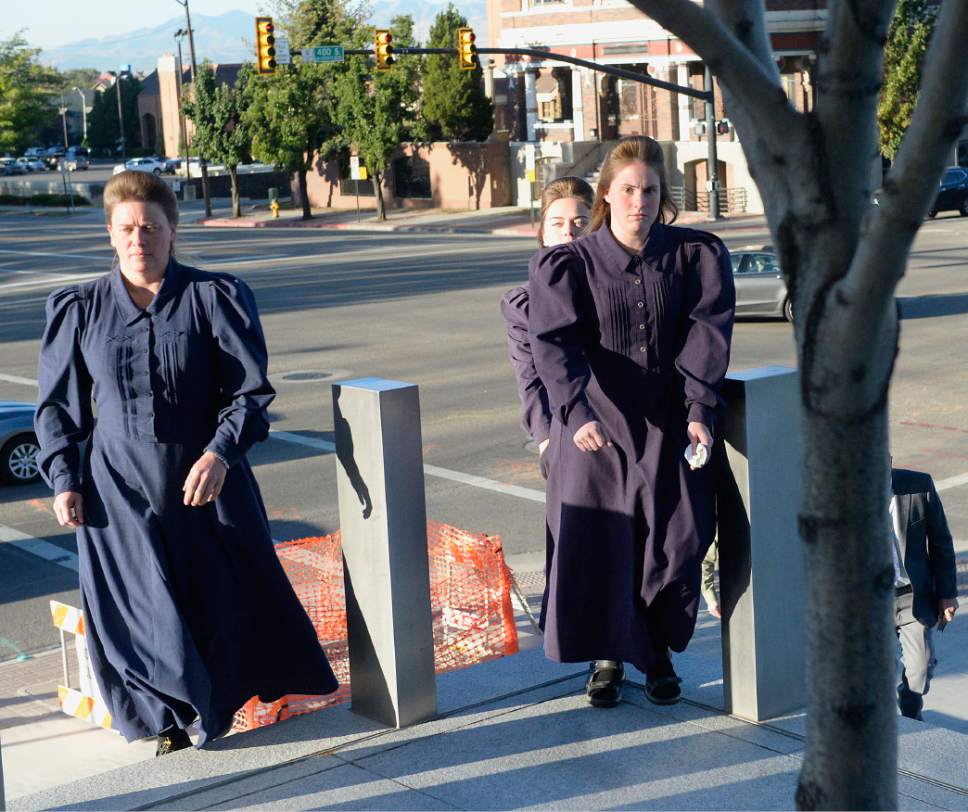This is an archived article that was published on sltrib.com in 2016, and information in the article may be outdated. It is provided only for personal research purposes and may not be reprinted.
In a hearing that delved into Mormon history and the modern practices of a polygamous sect, defense attorneys on Tuesday made the case that restrictions on the food stamp program and conspiracy indictments against sect members burden their religious freedom.
U.S. District Court Judge Ted Stewart will likely rule in November on whether to dismiss the fraud indictments against 11 members of the Fundamentalist Church of Jesus Christ of Latter-Day Saints, only one of whom took the witness stand Tuesday.
Defendant Seth Jeffs testified about the membership's practice of donating food to a central storehouse for redistribution. He called the Law of Consecration one of his sacred religious beliefs.
"We believe all is not ours anyway," Jeffs explained. "It all belongs to Heavenly Father."
But prosecutors allege that proceeds of food benefits were not evenly distributed among the faithful in accordance with FLDS beliefs. Instead, the government argues in court documents, the proceeds enriched a few people at the top of the church, specifically two former bishops who are among the defendants: Lyle Jeffs and John Wayman. The other nine defendants either benefited from or facilitated the alleged scheme, the government claims.
Seth Jeffs — shackled and wearing a blue Weber County Jail jumpsuit — testified about how the Law of Consecration works, with food and other items coming in the back doors of FLDS storehouses, while church members come in the front doors to make requests.
Jeffs said he is an eligible SNAP (Supplemental Nutrition Assistance Program) beneficiary who has donated to the storehouse.
"I believe the Law of Consecration is lived in Heaven," testified Seth Jeffs, who is a brother to Lyle Jeffs and imprisoned FLDS leader Warren Jeffs. "I'm preparing right now for that."
Defense attorney Jay Winward asked Seth Jeffs, "If someone prohibited you from practicing the Law of Consecration, how would it affect you?"
Seth Jeffs replied: "It would prohibit me from living my religion."
Other defendants have submitted written affidavits about their religious beliefs. Lawyers for Lyle Jeffs, who absconded from home confinement in mid-June and remains at large, have submitted depositions from previous civil cases where Lyle Jeffs discusses his religious beliefs.
Also Tuesday, a retired Brigham Young University professor testified that members of the FLDS speak and believe, in some ways, like the early Mormons.
That includes, said Lyndon W. Cook, a belief that consecrating belongings to the church is necessary for exaltation.
"They saw it as a requirement for salvation," Cook said of 19th century Mormons. "If they didn't do it, they wouldn't be saved."
Cook testified that the mainstream Mormon church abandoned some of its early teachings, including consecration and polygamy, in order to comply with the federal government. The FLDS do not appear to have abandoned those practices.
"They much more reflect 19th century Mormonism than they do 20th century practice," said Cook, who retired from BYU in 2007 and still studies early Mormon history.
Cook said an affidavit from defendant Lyle Jeffs describing his duties as bishop was consistent with how the consecrations worked in the 1800s.
Cook also said those early Mormons would have considered any government limits on consecrations or marriage infringements on their beliefs and likely would have ignored the law.
"They would have believed [those laws] to be a burden," Cook said.
The focus of the hearing was the Religious Freedom Restoration Act of 1993, which offers protections for the free exercise of religion, but articulates an exception.
The government may "substantially burden" that free exercise if the burden furthers a "compelling government interest" in the "least restrictive means," the statute says. The hearing was scheduled to last three days. But the decision by defendants to submit affidavits rather than testify, and a ruling by Stewart narrowing the scope of the questioning, shortened the proceeding.
Under cross-examination by assistant U.S. Attorney Robert Lund, Cook said he has not studied the FLDS nor was he aware of a Mormon doctrine explaining whether government benefits should be consecrated the same way livestock or real estate should be.
Stewart at times did not appear impressed with the lawyer's Cook's testimony. He repeatedly told defense attorneys to bring Cook's testimony "to the present."
"What The Church of Jesus Christ of Latter-Day Saints believed 100 years ago is not relevant to today," Stewart said at one point. He later acknowledged that early history of that church is also history of the FLDS.
Later in day, Stewart was surprised to learn some defense attorneys didn't know if their clients received SNAP benefits. He ordered the defendants to submit documentation if they were enrolled in SNAP.
"It all boils down to the point that if they are not receiving SNAP benefits, the defendants cannot be burdened by something they do not receive," Stewart said.
There were 14 lawyers representing the 11 defendants. A folding table was brought into the courtroom to give the lawyers room to work. The defense lawyers passed notes to one another as witnesses testified. When they huddled around a table during breaks, they looked like a football team waiting for the coach to send in the next play.
In the afternoon, Jeffrey Cohen, the deputy associate administrator of the U.S. Food and Nutrition Service, which oversees SNAP from Washington, D.C., testified about how the program works. Congress has created some accommodations for native Alaskans and group homes, but nothing that allows for sharing benefits among households prior to purchasing.
Defense attorney Kathy Nester focused on what happens after the purchase of items and whether the federal government polices how SNAP food is used.
"So if they take their food purchased with their SNAP benefits to a potluck dinner for the pastor, they haven't violated their benefits, have they?"
No, Cohen said, though he repeatedly emphasized that the benefits are to remain with the household receiving the benefits.
Stewart asked Cohen if the FLDS have ever asked Congress for an accommodation. Cohen said he wasn't aware of any such requests.
The defendants are each charged with two counts of conspiracy.
If Stewart lets the indictments stand, a trial is scheduled to begin Jan. 30.
Twitter: @natecarlisle


